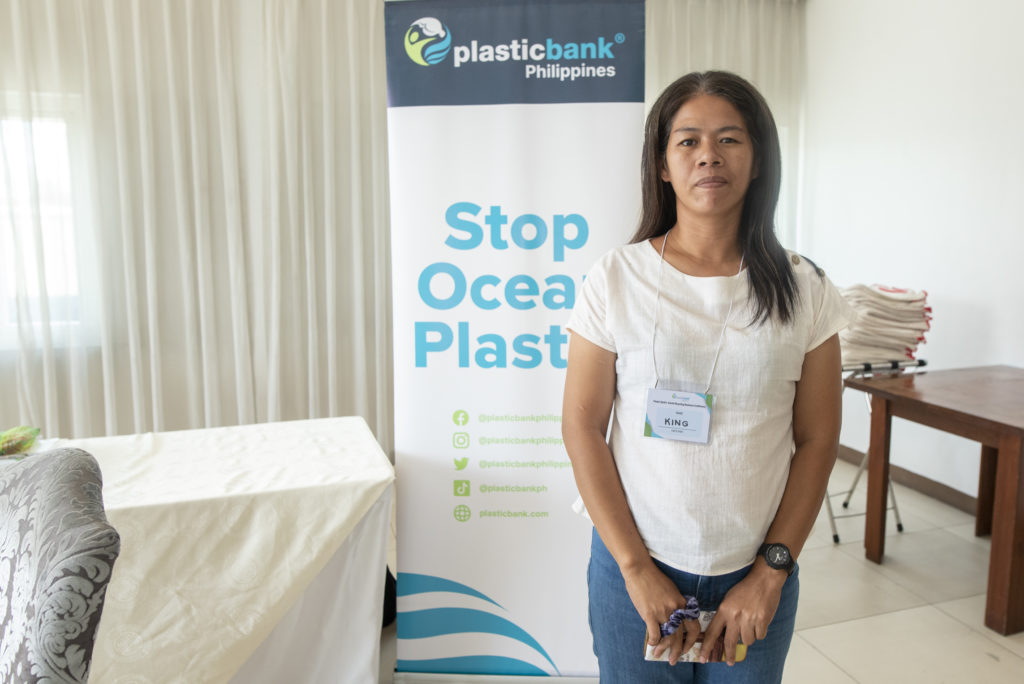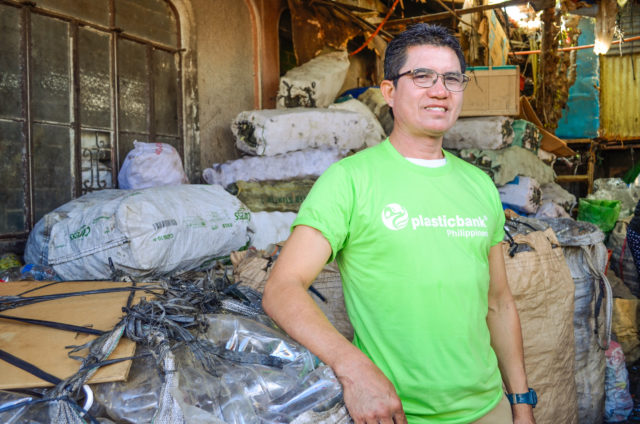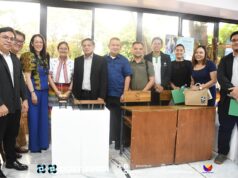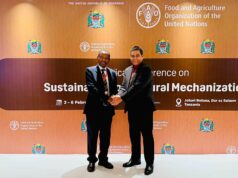LAGUNA, Philippines — Three years ago, Coca-Cola Philippines and Plastic Bank Philippines made a pact to support a circular economy in the Philippines by creating the Ecosystem Impact Program, an initiative that builds collection and recycling systems in communities to prevent plastic bottles from ending up in places where they should not be—including our rivers, oceans, and landfills—while at the same time, empowering workers in the solid waste management sector.
Since then, their efforts have resulted in the collection of more than 8.7 million bottles for recycling and the activation of 33 waste collection centers across Cavite and Laguna, many of which are located in coastal communities. Through the support of Coca-Cola Philippines, the Plastic Bank ecosystem now has 600 waste collection members, equipped with tools and equipment for efficient waste collection, financial and business literacy, operations management, and health and sanitation.
The partnership is aligned with The Coca-Cola Company’s World Without Waste global sustainable packaging strategy, whereby the company aims to make 100% of its packaging recyclable globally by 2025, use at least 50% recycled plastic in its packaging by 2030, help collect the equivalent of every can and bottle it sells by 2030, and bring people together to support a healthy, debris-free environment.
Empowering waste collectors as ocean defenders
Coca-Cola Philippines recognizes the role that waste collection locations play as part of the “backbone” of solid waste management in the country. “Through these high-profile waste collection locations, many consumers are encouraged to segregate their waste and recycle,” said Atty. Cashmer Dirampaten, Public Affairs, Communications, and Sustainability Director, East Region of Coca-Cola ASEAN & South Pacific East Operating Unit. “They encourage consumers to bring recyclable plastic bottles to waste collection locations so those can be reused, instead of being thrown away and ending up in places where they should not be.”
Guido Sarreal, Plastic Bank Regional HR Business Partner for the Asia-Pacific Region, acknowledges Coca-Cola Philippines for its continuous support to the Plastic Bank Ecosystem and its waste collection members. “We are very honored and privileged to have an organization like Coca-Cola Philippines that is sincere in their efforts in helping drive a circular economy for plastic packaging, and in helping our partners and collectors increase their capacity, capability, and ability to thrive and to support their families,” Sarreal said.
Sarreal emphasized that Plastic Bank has found a real partner in Coca-Cola Philippines as they share a common goal to prevent plastics from reaching the ocean and uplift the lives of people who collect them. “We call waste pickers and collectors “frontliners” because they are among the first lines of defense that protect our oceans from plastic waste.”
Helping waste collectors grow their businesses
In Santa Rosa, Laguna, Roberto Papagayo, owner of Papagayo Junkshop, started his business in 2005. He got the idea of entering the waste collection business from his father-in-law, a bottle picker. Their family saw significant economic value in waste collection and built their enterprise with only Php 3,000 as capital. Their business started booming within the first year and like any other business, they aspired to continue to grow, which led them to join the Ecosystem Impact Program.
In just six months of partnership, Papagayo Junkshop saw an increase in profit, thanks to the Plastic Bank App that helps users–waste collectors and pickers–earn rewards for bottles collected and recycled, monitor plastic collection and recycling processes, deliver plastic credit programs, and produce audit-ready impact reporting.
“Naging masipag ang mga magbobote namin sa pagbebenta dahil mayroon silang natatanggap na incentives. Dahil dito, mas dumadami ang nakokolektang bote at mas lumalaki ang kita (We noticed that our waste pickers have become more hardworking and reliable partly because of the incentives they get from the program, resulting in increased plastic bottle collection and sales),” Papagayo said. Aside from incentives, the program also provides tools, equipment, and training for waste collectors and pickers to help them become more efficient and productive.
Papagayo added that the partnership made their business more visible in their community. “Proud ako na maging member ng Coca-Cola Philippines at Plastic Bank Ecosystem (I am proud to be a member of Coca-Cola Philippines and Plastic Bank’s ecosystem). Kapag nakikita ito ng mga tao, nahihikayat silang magbenta sa amin (People who learn about that become more eager to do business with us).”
The Llabres Junkshop in Laguna is also pleased with its decision to join the program because of the benefits to their business, particularly in streamlining operations. Katherine Llabres and her husband, Joel Llabres, have been running their business for 10 years. They joined the Ecosystem Impact Program in May 2022.

“Natutulungan ako ng program na i-monitor ang dami ng plastic bottles na nakolekta namin at kung puwede na ba itong ibenta sa recycling facilities (The program helps me monitor the volume of plastic bottles collected and determine if it is large enough to be sold to recycling facilities),” Llabres said.
“Dati, hindi ko agad nalalaman kung gaano na karami ang nakolekta, nakatambak lang. Pero ngayon, mas madali na mag-monitor ng transactions (I used to be confused and overwhelmed by the quantity of waste collected. But now, recording and monitoring transactions have become easier).”
Llabres also noticed that their site became cleaner and more organized through the help of the Ecosystem Impact Program. “Binigyan nila kami ng jumbo bags para doon ilagay mga nakolektang bote, para hindi nakakalat (They gave us jumbo bags where we stock our collections so that they are not scattered around),” she said.
“Binigyan din nila kami ng digital na kilohan. Mas gustong magbenta sa amin ng mga tao ng kalakal mula noon kasi accurate iyong digital, hindi sila nadadaya (They also gave us a digital weighing scale that helps us bring more customers. Since the weighing scale is digital and more accurate, our customers are more confident that they will receive a fair price in exchange for the waste that they have collected).”
Inspiring collective action towards plastic circularity
Papagayo and Llabres believe that waste collection centers have an important role in keeping communities safe from various environmental and health risks. They see the active involvement of community members in waste collection and recycling as crucial in ensuring sustainability.
For Llabres, providing economic opportunities helps spark action. “Sinasabihan ko sila na linisin na nila ang mga bote at tanggalan na ng label para mas malaki ang makuha nila pag ibinenta (I advise waste pickers and collectors to wash the plastic bottles and remove the labels before selling them to me so they can earn more money),” she said. “Dahil kumikita sila sa pangangalakal, naglilinis na sila ng paligid nila. Kaysa naman iba ang ginagawa, namumulot na lang ng sila ng mga bote, maiibenta pa nila (Because they earn from segregating waste, many of our residents are encouraged to clean their surroundings. They realize that it is a more productive use of their time).”
Papagayo does the same thing. “Sinasabihan ko ang mga nakakausap ko na kaysa itambak o itapon mga gamit nila, ibenta na lang nila sa akin (I promote waste segregation by telling people to sell things that can be recycled instead of discarding them),” he said.
“Nakatira kami sa coastal community malapit sa Laguna de Bay. Maraming plastic doon lalo na kapag umuulan at bumabaha. Iyong mga basura, sa halip na nakatambak doon, kinukuha ng mga nakatira doon at ibinebenta sa amin, lalo na ‘yung plastic bottles. Kumikita na sila, nalilinis pa ‘yung dagat (We live in a coastal community near Laguna de Bay. We find many plastics there, especially when it rains and floods. Residents prevent waste from accumulating in our shores and waters by collecting and selling them to us. We all earn while protecting our oceans).”
According to Sarreal, the Plastic Bank Ecosystem collected 200 metric tons of plastic waste in 2022, and they aim to double the number this year. He emphasized that collective participation driven by positive behavior change helps them achieve these goals.
“When you hear waste collectors and pickers talk about how they are part of stopping ocean plastic, that’s a mindset change. From only seeing the waste collection as an income source to believing that they are part of the solution against the plastic problem shows great promise,” he said.
For 2023, Coca-Cola Philippines aims to further expand its over 2,000 community-backed collection hubs nationwide and strengthen collaborations with communities and like-minded organizations all over the Philippines.





